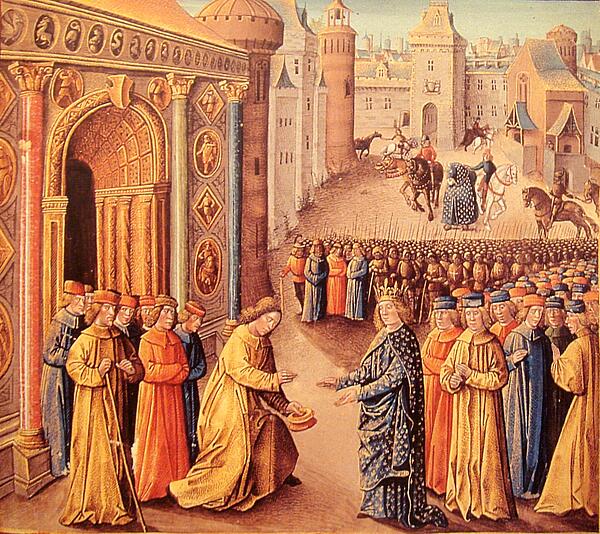The Second Crusade
The Second Crusade took place between 1147 and 1149 and was instigated by Pope Eugene (Eugenius) III in a bid to defeat the Muslims who were still threatening to retake control of the Holy Lands.
A second crusade was considered necessary due to the capture of the County of Edessa in 1144, which meant that the crusader states were vulnerable to attack.
Large armies drawn from across three major nations - England, France and Germany - and a host of smaller nations, gathered in preparation and a Cistercian abbot, Bernard of Clairvaux, encouraged Conrad III of Germany to go on crusade alongside Louis VII. The pair arrived in Constantinople in 1147, together leading their respective armies - the first time that kings had done so.

The plan was to cross to Anatolia in order to destroy the Turkish armies that had been seen the year prior, while the ultimate aim of the crusade was to recover the County of Edessa, secure the pilgrim pass and provide reinforcements to Jerusalem. The latter was at risk because the vast majority of knights had died since the First Crusade, which took place between 1095 and 1099.
They attacked the Muslim city of Damascus first, which had been allied to the Christians until that point. However, upon the arrival of Nur al-Din and his armies, both Louis VII of France and Conrad III of Germany were defeated by the Turks and abandoned their siege, ending the Second Crusade. The armies did have a small measure of success in that they acquired Lisbon in Portugal and numerous other small settlements.
One of the major reasons behind the failure of the Second Crusade was the lack of communication between the two kings. Conrad launched an initial attack on the Seljuk Turks capital, Iconium, while the French attacked another target in Anatolia. This splitting up gave the Turks a chance to march at speed from one location to the next without being outnumbered by the crusade and overwhelmed.
Conrad was instantly defeated by the Turks and almost died as a result. The French, while lasting longer, were also defeated and their army nearly entirely destroyed.
Europe suffered greatly in terms of its economy and lack of recruits as a result of the failure of the Second Crusade, which was seen as marking the first sign of the fall of the Crusaders States in the Middle East. The Egyptians were now ruled by Saladin, who managed to successfully unite Syria and Egypt over their common enemy, the Christians, therefore completely surrounding the Crusaders.
Following the failure of the Second Crusade, Jerusalem was also left without adequate protection, something which ultimately led to the demand for the Third Crusade.
See also: The Third Crusade
MLA Citation/Reference
"The Second Crusade". HistoryLearning.com. 2026. Web.
